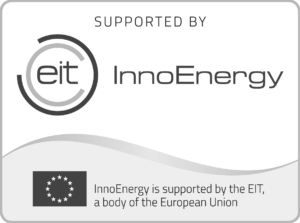30.08.2019
Health community roundtable: doctors won’t be replaced by artificial intelligence any time soon
This year’s brainstorming sessions among the health community discussed how to solve the issues related to the adoption of artificial intelligence. The discussion participants found that the precondition for going forward with AI was systematic and structured data collection and changes in the funding of the entire field.
According to Connected Health cluster head Piret Hirv, one of the requirements for the use of AI in health care is cooperation between interest groups. “It is quite clear that AI will be used more and more in future medicine, but it will not start replacing doctors quite yet,” Hirv explained. “Instead, AI is a rapid and convenient source of answers, the basis for which will be our own health data. Today, very many people turn to Google for their answers and make their health decisions based on what they read there, but in future, this probably won’t be necessary. The health technology cluster will definitely be working to make AI useful to patients and doctors in future.”
Speaking at the health community brainstorming sessions, Minister of Social Affairs Tanel Kiik said that he tended to be optimistic on AI related issues but admitted the topic required debate in society.
Kiik said AI was something that sparked curiosity and questions but also came with concerns and prejudices. “Some see AI as a success story and an opportunity for increasing effectiveness and offering higher quality services, but others think it could create inequality. It is undoubtedly important to explore and think about this topic more broadly in terms of how we can move forward together in developing the healthcare system.”
The minister added that a number of questions are still up in the air, but he believes society is ready for AI debates. “How far we will go as far as bestowing privileges and where does the responsibility lie? What if a computer gives bad advice or makes the wrong decision – who will be responsible? Where is the boundary between AI’ s rights, responsibility and ethics? Estonian society needs calm dialogue on these matters, be it in healthcare, the legal system or the transport sector.”
One takeaway from the sessions was to first discuss the general issues such as data protection or ethics and then move on to sector-specific matters and tackle health-specific questions. Regulation of AI, including the question of responsibility for errors made by AI, should be universal and not sector-specific.
MP and former health minister Riina Sikkut asked whether anyone should be accused – mistakes can be learned from and perhaps we should think about compensating damage rather than levelling accusations, she said.
Speakers confirmed that we are still far from replacing doctors: AI is a technology and it comes down to the choice of how to use it, to what extent it is used for decision making and to what extent for decision support.
Peeter Ross, Professor at the Institute of Health Technologies at Tallinn University of Technology and the Director of the E-Medicine Centre, also works as a radiologist at the East Tallinn Central Hospital and is a consultant on e-health for the World Bank and Asian Development Bank. In his presentation at the sessions, he pondered whether AI will always work in conjunction with the healthcare professional or whether it could replace the healthcare professional?
“The question isn’t about whether AI will replace doctors or not; the answer is no. The doctors who use methods supported by AI will benefit,” said Ross.
The discussion participants found that the precondition for going forward with AI was systematic and structured data collection and changes in the funding of the entire field.
Photos from the event (photographer Madli Viigimaa)
Brainstorming sessions in the health community – “How to use AI in healthcare? Legal, ethical and technical issues in the adoption of AI” took place in Laitse on 27 August.
The Connected Health cluster led by Tehnopol Science Park is Estonia’s biggest healthcare tech community, uniting health service providers, health tech companies and all other key interest groups in the field. The cluster’s support enables domestic cooperation projects and the export of health technological solutions to other countries.
The cluster’s activities are co-financed by Enterprise Estonia.












